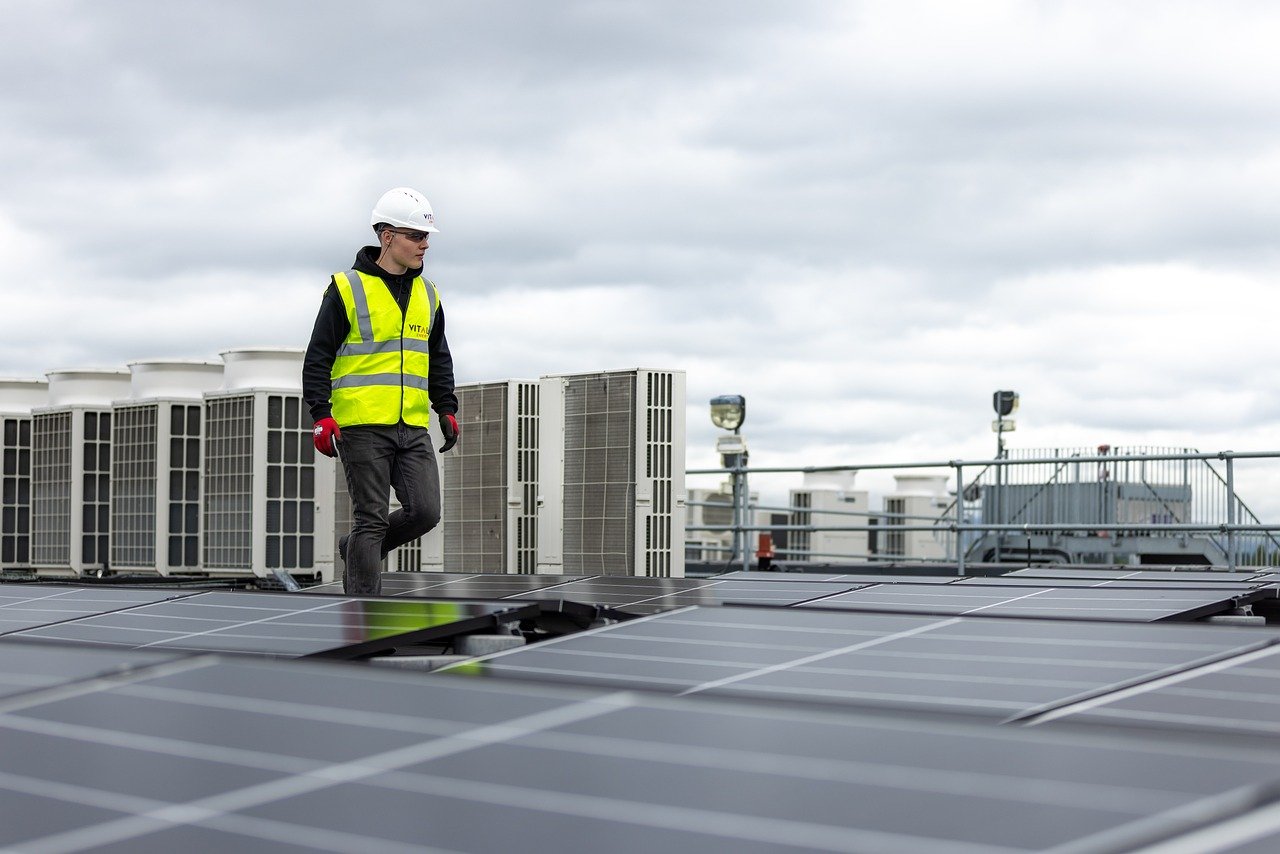How AI is driving new approaches to solar
At a time of rising capital costs and a need to secure project returns, technology is becoming even more critical than ever. AI and machine learning enable significant quantities of data that solar sites produce to be captured, assessed and converted into strategic insights.
One session at the UK Solar Summit focused on how technology can drive the UK solar industry forward. Abid Kazim, the founding investor of Lumina Renewables, explained that capital costs have become a challenge for the solar industry. Kazim reiterated that we can’t spend money on solar projects without ensuring they become more efficient. Based on this, the industry is moving to technology to create new approaches to strengthening solar efficiency, transforming how we think about and measure success.
The traditional project design involves arranging solar modules to the south to maximise energy production. Developers would add more modules to generate more power and a higher return. However, rising capital costs associated with financing additional modules and the land needed mean this approach doesn’t generate the expected returns.
Eric Montmean, the head of UK solar at TotalEnergies, highlighted a French solar site where the modules were set to the west. This results in the modules capturing more energy in the afternoon, when market prices are higher, providing more return on investment despite producing fewer watts. As a result, a 16% increase in revenue by capturing more energy at the end of the day. TotalEnergies is now testing this process in the UK, and early signs look promising.
Managing potential losses
AI and Machine Learning can transform the project planning process, generate higher returns and be applied to determine issues with existing installations.
Emilio Martinez, the technical head at UK-based Vector Renewables, emphasises the importance of applying AI to identify project challenges. Martinez, explains they had a client invest in a new solar facility with innovative tracking technology. During the first few years, production was slightly lower than expected and did create financial pressure. Machine learning was applied to replicate the solar installation following modelling processes. A series of tests predicted production to a very high accuracy. The modelling team identified the trackers were performing below specification, which is very difficult for other project leaders to distinguish. The data also showed that the modules weren’t operating to their expected features, performing slightly lower than their claimed output. The data insights enabled the project to manage the overall panel performance and mitigate further issues.
Integrating new technology into solar
Machine Learning enables us to measure everything and understand information at scale and speed. Thousands of data points can be processed very quickly, determining issues rapidly. This large volume of data can be interpreted significantly quicker than completed manually.
Applying this technology to manage and explore projects means efficiencies can be recognised within the planning, construction and operation phases. This means costs and revenue can be controlled, which could be the difference between a project progressing or coming to an end.
One of the biggest challenges faced now and in the future is that the UK and Europe demand more capital to deliver new energy facilities. This requires significant investment, and if projects can’t generate revenue, then it’s very challenging to build more sites. The solar industry must explore ways of maximising value, and innovative technology could be the solution.
For the latest Green Jobs, Environmental Jobs, Solar Jobs, Energy Jobs, Renewable Energy Jobs, Solar Energy Jobs in the United Kingdom please visit – GreenJobs
For the latest Green Jobs, Environmental Jobs, Solar Jobs , Energy Jobs, Renewable Energy Jobs, Solar Energy Jobs in Ireland please visit – GreenJobs Ireland
LOOKING TO HIRE TALENTED GREEN PROFESSIONALS?
We Can Help You To Find The Right Candidate & Save You Money. For more information please contact us at – info@greenjobs.co.uk – quoting the following promotional code – GREENFUTURE2012


